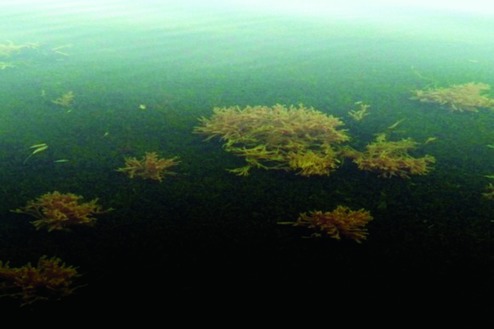
Bhubaneswar: Scientists of the Chilika Development Authority (CDA) have observed sponges, a primitive animal, in the southern sector of Chilika Lake near Rambha. Scientists said that sponges, which act as water purifier, would boost the ecosystem of the lake which has been designated as a Ramsar site (Wetland of International Importance).
The sponges were observed on December 14 and 16 by the team of experts. The sponges were found in sea grass meadows and were attached to the sea grass leaves in the southern sector. "We have confirmed the genus and will send the samples to the Zoological Survey of India in Calcutta for further studies. Normally, the sponges are found in fresh water but we have found these primitive animals in brackish water," said senior scientist of CDA Gurdeep Rastogi.
Scientists believe that the sponges play an important role in changing the water quality of the lake. "Sponges collect bacteria when they filter the water around them. These bacteria are believed to be able to perform many things such as conversion of nitrogen gas into useful nitrogen, which is beneficial for survival of other organisms in the area. Though the presence of sponges in the lake were reported around five decades ago, the observation of sponges in the lake will boost the ecosystem of the lake," said a scientist.
Earlier, the researchers also recorded as many as 17 new fish species at the Chilika lagoon between 2011 and 2017. The World Bank-aided research was conducted by the Central Inland Fisheries Research Institute, Barrackpore, in Bengal. It had revealed presence of 335 species of fish including 129 commercially important ones.
Besides, the forest officials this year had also spotted Irrawaddy dolphin ( Orcaella brevirostris), a Schedule-I animal under the Wildlife Protection Act, 1972, in Chilka Lake near Rambha in Gnajam district after more than three decades.
Additional chief executive of Chilika Development Authority (CDA), Sasmita Lenka said that a drive against encroachers through prawn gherris had led to new findings in the lake.
"The area in which sponges were found used to be encroached, which was why our scientists never noticed them before. Eviction drive will be intensified," she said.










